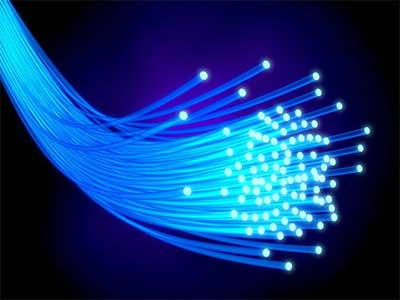Date : 08/06/2023
Relevance: GS paper 2 : Government intervention & Policies, GS Paper 3 : Internet
Key Words: Digital Literacy, e- Governance, BPL families
Context -
- In a significant move on November 7, 2019, Government in Kerala became the first state in India to declare access to the Internet as a basic right.
- The government introduced the Kerala Fibre Optic Network (KFON) project, aiming to provide free internet connections to 20 lakh below-poverty-line (BPL) families.
- KFON's primary objective is to ensure universal internet access, especially in remote areas, and narrow the digital divide that has been exacerbated by the COVID-19 pandemic.
Infrastructure and Service Provision:
- The Kerala government has taken the responsibility of establishing the extensive infrastructure required to provide internet access across the state, even in remote corners and tribal hamlets that were previously disconnected.
- KFON Limited, a joint venture of the Kerala State Electricity Board (KSEB) and the Kerala State Information Technology Infrastructure Ltd (KSITIL), has leveraged the existing infrastructure of the KSEB for cabling, covering an impressive distance of 34,961 km.
- KFON obtained an infrastructure provider (IP) license and approval as an internet service provider (ISP) from the Department of Telecommunications (DoT).
- Its major services are connectivity to government offices, leasing of dark fibre, internet leased line, fibre to the home, wifi hotspots, colocation of assets under network operating centres and Point-of-Presences, internet protocol television, OTT, and cloud hosting.
Rollout Strategy:
- KFON's rollout strategy involves initially connecting 14,000 BPL families, with 100 families from each of the 140 assembly constituencies in the state.
- The selection of beneficiaries is the responsibility of panchayats and urban local bodies, but the process has faced delays, with some local bodies being slow in submitting beneficiary lists.
- Presently, 7,000 BPL families have been provided with internet connections, offering them 1.5 GB of data per day at a speed of 15 Mbps. The second phase of the project aims to make internet services available to the general public at affordable rates.
Monetization and Future Prospects
- The provision of free internet connections to BPL families and government institutions is just one aspect of the ₹1,548 crore KFON project. The remaining network infrastructure will be monetized. The surplus fibres can be leased out, presenting revenue-generating possibilities.
- The successful implementation of the KFON project aligns with Kerala's vision of becoming India's first fully e-governed state.
- The government has introduced the e-office system in various administrative bodies, offering 900 government services through a single-window portal.
Promoting Digital Literacy:
- In addition to the infrastructure development, the Kerala government has initiated a grassroots-level digital literacy campaign through local bodies. The aim is to equip every individual with the necessary skills to access basic services through the internet.
- By empowering the population with digital literacy, the KFON project has the potential to bring about transformative change in terms of access and opportunities for the people of Kerala.
Conclusion:
The Kerala Fibre Optic Network (KFON) project, launched by the Kerala Government, has made significant strides in bridging the digital divide in Kerala. By recognizing internet access as a basic right, providing free connections to BPL families, and establishing an extensive network infrastructure, the government aims to ensure universal internet access. With a focus on digital literacy and e-governance initiatives, Kerala is well on its way to becoming a leading example of utilizing technology for the betterment of its citizens and narrowing the digital divide.
Probable Questions for Mains Exam -
- Question 1 : Analyze the implications of Kerala's declaration of internet access as a basic right. Discuss the significance of becoming India's first fully e-governed state and the implementation of the e-office system.(10 Marks,150 Words )
- Question 2 : Discuss the significance of the Kerala Fibre Optic Network (KFON) project in bridging the digital divide and promoting inclusive growth in Kerala. Analyze the government's approach in providing free internet access to below-poverty-line families and its impact on digital literacy and e-governance initiatives in the state. (15 Marks,250 Words)
Source : The Hindu








